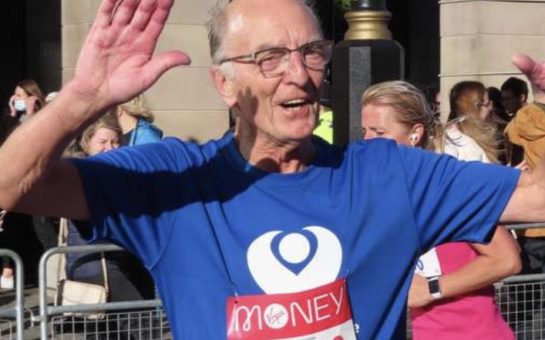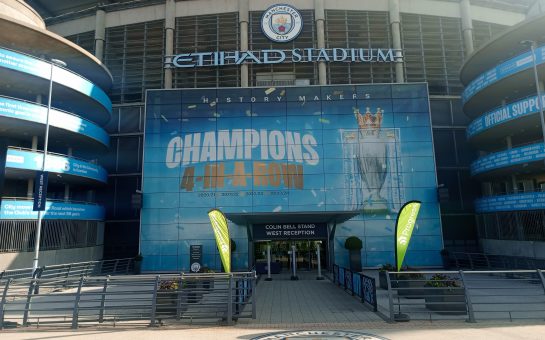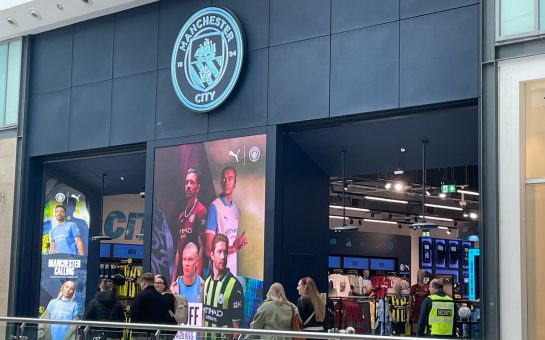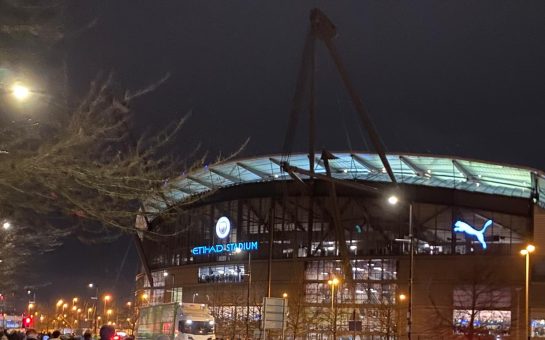While Manchester City were giving CSKA Moscow a footballing lesson on the pitch during Tuesday’s 5-2 Champions League win, the home fans taught their Russian counterparts a more important one off it as they roared their team into the last 16 for the first time.
According to Yaya Toure, the City and Ivory Coast midfielder who claims he was vociferously abused by the ‘Militarians’ fans a fortnight ago for the colour of his skin, the Manchester club’s supporters showed the CSKA followers how to properly cheer on a team at a jubilant Etihad stadium on a rainy evening.
Russia, who will have the eyes of the world trained on them in 2018 when they host the World Cup, was where Toure appeared to be the target of racist chanting.
Upset, he said a boycott of the biggest party in football by African players was a possibility. European football’s governing body Uefa acted swiftly by imposing a partial stadium closure on CSKA.
Such an atmosphere may seem inconceivable to the generation of fans growing up on English terraces today, but unfortunately it was not so long ago that hatred was present all over Britain.
Turn the clock back 25 years and English football grounds were a breeding ground for National Front meetings and organised hooliganism.
The trip down memory lane shows that the Blue half of Manchester stood out against the vulgar as a positive example, just as they did on Tuesday, although not in the most conventional way.
MM caught up with the City fan who defied the violence and discrimination… with a giant inflatable banana.
It is March 1988 and Frank Newton is visiting a mate. Upon entering the friend’s house his eyes are immediately drawn to the five foot, bright yellow rubber fruit sat idly among the tables and chairs.
Infatuated, as much as one can be with such an item, Frank asked if he could have it. His friend agreed – as long as he took it to a football match.
Unperturbed by the request he decided that City’s next home game, an FA Cup quarter-final with Liverpool, would be the ideal time to unveil his new mascot.
Frank and his friend drew a face onto the holiday toy and tied a scarf around it to add personality, before introducing it as the latest Kippax attendee.
“We got some odd glances at first and some amused ones,” Frank told MM.
While the banana did not prove to be a particularly lucky charm as City lost 4-0, it made a more positive impact with fans than the players did.
City’s journeyman forward Imre Varadi was soon being referred to as Imre Banana by supporters at Maine Road.
As Frank followed City home and away his blow-up companion travelled all over the country. It was not long until others followed suit.
“Towards the end of the season another, smaller banana appeared, then a couple more,” he recalled.
“The first away game of the following season there were hundreds of them! Gradually the inflatables diversified with all manner of shapes and sizes appearing.
“The most memorable match for me was West Brom away, where a giant dinosaur appeared at one end of the terrace and a giant Frankenstein monster at the other.
“These converged amid raucous cheering and battled right in the middle. We didn’t win the match but we had a great time in the process.”
So why did he decide to take the banana in the first place and why was the trend so infectious?
“In the 80s there were times when it wasn’t conducive to your well-being to travel to watch a match,” he explained.
“I felt the banana was a backlash against the minority who perpetrated the tribalism surrounding football in an unsavoury and violent way.
“It’s hard to look threatening when walking down the road carrying a 5ft inflatable banana or crocodile.
“The inflatables marked a period in time where football was fighting to rid itself of the minority of trouble makers – I won’t call them fans – who were using the game for their own ends and perpetrating violence using the game as cover.”
He also explained that the toys were a way of hitting back at an underperforming team, a way of being able to enjoy the match no matter what the result was.
The craze spread across the country with several teams having their own inflatable symbols – Grimsby had fish, Bury had black puddings, Stoke had pink panthers.
Unfortunately the bananas faded out due to concerns over visibility restrictions for other fans and, with a sense of tragic irony, suggestions of racist undertones.
Back to the present day and Frank says he is unsurprised that the abuse allegedly levelled at Toure came from fans who live in a country that, in terms of equality, is decades behind Britain.
Speaking from experience, he was adamant that there will be people hidden silently among the racists who will be desperate to take a stand and show they are not part of it.
“Maybe we’ll soon see fans of some important but underachieving club in Russia take to the stands carrying inflatable bananas.”
Image courtesy of Colin Cranmer via YouTube, with thanks.
For more on this story and many others, follow Mancunian Matters on Twitter and Facebook.



